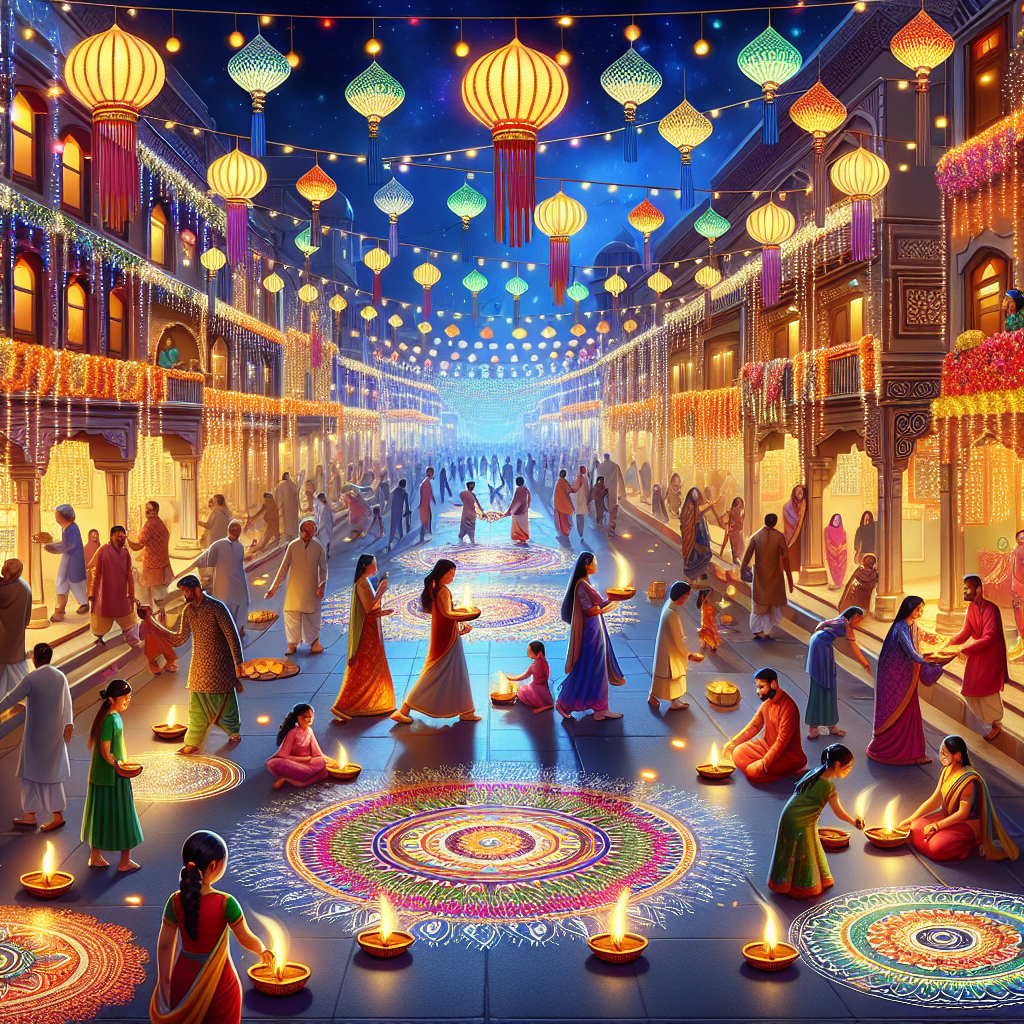Diwali Festival: A Guide To The Celebrations And Traditions

Introduction
Diwali, also known as Deepavali, is a major Hindu festival celebrated across India and many parts of the world. It is a festival of lights, joy, and happiness that marks the triumph of good over evil and light over darkness. This vibrant and joyous festival is celebrated with great enthusiasm and fervor by people of all ages and backgrounds.
The word Diwali is derived from the Sanskrit word 'Deepavali', which means a row of lights. It is believed that on this day, Lord Rama, the seventh avatar of Lord Vishnu, returned to his kingdom Ayodhya after defeating the demon king Ravana and completing his 14 years of exile. To welcome and honor his return, the people of Ayodhya lit diyas (earthen lamps) and decorated the streets with flowers and colorful rangolis. Since then, Diwali is celebrated every year to commemorate this event and spread joy and happiness.
Traditions and Celebrations
Diwali is a five-day festival that begins with Dhanteras and ends with Bhai Dooj. Each day has its own significance and traditions, making the festival a grand affair. Let's take a look at the various traditions and celebrations associated with Diwali.
Dhanteras
The first day of Diwali is known as Dhanteras, also known as Dhanatrayodashi. It is considered an auspicious day to buy gold, silver, and utensils, as it is believed that Goddess Lakshmi, the goddess of wealth, visits the homes of her devotees on this day and brings prosperity and good fortune.
Chhoti Diwali
The second day of Diwali is known as Chhoti Diwali or Narak Chaturdashi. It is believed that on this day, Lord Krishna and his wife Satyabhama defeated the demon Narakasura and freed the world from his terror. To celebrate this victory, people light diyas and burst firecrackers to symbolize the triumph of good over evil.
Diwali
The main day of Diwali falls on the third day and is also known as Lakshmi Puja. On this day, people clean and decorate their homes with colorful rangolis, flowers, and lights. They also offer prayers to Goddess Lakshmi and Lord Ganesha for prosperity and well-being. In the evening, families gather to light diyas, burst firecrackers, and exchange gifts and sweets with their loved ones.
Govardhan Puja
The fourth day of Diwali is known as Govardhan Puja. It is believed that on this day, Lord Krishna lifted the Govardhan mountain on his little finger to protect the people of Vrindavan from the wrath of Lord Indra. To celebrate this event, people decorate their homes with cow dung and worship cows, who are considered sacred in Hinduism.
Bhai Dooj
The final day of Diwali is known as Bhai Dooj, also known as Yama Dwitiya. On this day, sisters pray for the long and prosperous life of their brothers. Brothers, in turn, give gifts to their sisters as a token of their love and affection. This day celebrates the beautiful bond between siblings and strengthens their relationship.
Significance of Diwali
Diwali holds great significance in Hinduism, and it is celebrated for various reasons. For some, it marks the end of the harvest season and the beginning of a new financial year. For others, it is a time to honor the victory of good over evil. Diwali is also a time to celebrate the bond between family and friends and spread joy and happiness.
Benefits and Practical Tips
Diwali is a festival that brings people closer and spreads joy and happiness. It also has several benefits, both spiritual and practical. Celebrating Diwali can help in:
- Strengthening family bonds
- Bringing prosperity and good fortune
- Promoting unity and harmony
- Encouraging creativity and artistry
- Spreading joy and happiness
Here are some practical tips to celebrate a safe and eco-friendly Diwali:
- Avoid using firecrackers and opt for eco-friendly alternatives
- Use clay diyas instead of plastic ones
- Decorate your home with flowers and rangolis made of natural colors
- Avoid wastage of food and water
- Donate to the less fortunate and spread joy and happiness
Conclusion
Diwali is a festival that brings people together and spreads love, joy, and happiness. It is a time to celebrate the triumph of good over evil and spread positivity and light in the world. By understanding the history and significance of this festival, we can celebrate it in a more meaningful and responsible manner. Let's all come together to celebrate this festival of lights and make it a memorable one for ourselves and our loved ones.
#Diwali #FestivalOfLights #Joy #Happiness #Traditions #Celebrations #GoodOverEvil #India #Hinduism #Unity #Harmony #Prosperity #Family #Love #EcoFriendly #SpreadLove #SpreadJoy